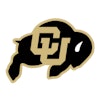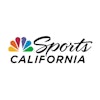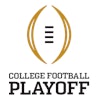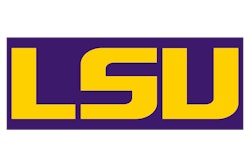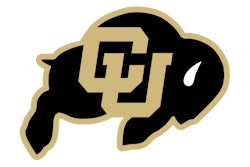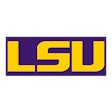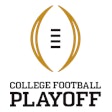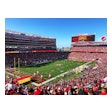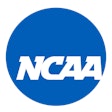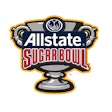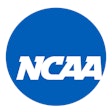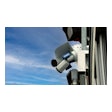Copyright 2018 Gannett Company, Inc.
All Rights Reserved
USA TODAY
"It is coming," sports betting expert and best-selling author Declan Hill told USA TODAY Sports. "Betting shops, betting in stadiums, stadiums named after betting companies, a lot of ads promoting betting. That's what you see in the United Kingdom, and without question you'll see it in America before long."
To imagine the future of sports betting, you need only look across the Atlantic Ocean to the U.K., where it was legalized nearly 60 years ago.
The movement in the USA officially started last month when the Supreme Court overturned a federal ban on sports betting and allowed states to legalize it. Delaware became the first outside of Nevada when betting windows opened Tuesday at three horse racing tracks. New Jersey, Mississippi and West Virginia are not far behind.
"There are a lot of similarities between the U.S. and U.K. markets," said David Forrest, an applied economist at the University of Liverpool who specializes in analyzing the sports and gambling industries. "There is a large middle class with disposable income, a passion for sports and — despite the previous American law — a desire to gamble."
'It is a community'
Legalized sports betting was introduced in Great Britain in 1961, and offices can be found in every major town and most minor ones, from the medieval-meets-Millennial madness of London to quaint villages with ludicrous names such as Pratt's Bottom, Brown Willy and Upton Snodsbury.
"When I grew up, bookmakers were like sex shops. The windows were all whitewashed, so you couldn't see inside them at all," said Mark Griffiths, 51, a sports gambling expert at Nottingham Trent University.
No longer. The parlors are adorned with the gaze-snatching signage of chains such as William Hill, Betfred and Paddy Power. The glass is dressed with the latest promotions, and free cups of tea (no alcohol allowed) are offered inside.
You won't see many women. The betting shop has largely replaced the pub, most of which attempt to be family-friendly, as a social meeting point for the middle-aged British male.
The shops are generally small affairs, which open early and close by 10 p.m. Griffiths said.
Charles Sheppard, a bus driver from London, regularly wagers a few pounds on soccer and boxing matches at a Ladbrokes location. "It keeps me sharp," Sheppard said. "It is a nice way to enjoy sport. It is a community. I have made firm friends at the shop."
How-to guides are pinned across the walls, sheets listing soccer odds are stacked alongside and copies of the Racing Post are pored over.
Terminals for placing bets dot the corners, but most punters edge over to the counter where an assistant processes their bet.
"For those people who do it and understand it and enjoy it, bookmakers can be a big part of their lives," William Hill representative Ciaran O'Brien said. "It's mentally stimulating; it can be a social environment, particularly for the elderly. My uncle is 82, and it's the thing that gets him out of the house each day."
'A lot harder to fix games'
Nearly a century has passed, but America has never quite gotten over the Black Sox scandal of 1919, when eight members of the Chicago White Sox threw the World Series. That scandal and more recent ones have been used by sports betting opponents to protest legalization.
British experience suggests that legalized sports betting and corruption do not go hand in hand.
"Match fixing was rife in English (soccer) in the 1950s," said Hill, an investigative journalist whose book The Fix: Soccer and Organized Crime looked at criminal attempts to influence games. "There are two things that helped fundamentally clean it up. The legalization of gambling and an improvement (in player salaries)."
Potential match fixing is vigilantly monitored in English soccer and international cricket.
"Let me go as far as to say that the likelihood of corruption in things like college sports will actually go down in America, thanks to the new legal situation," Forrest said. "It will get a lot harder to fix games when there is oversight and transparency."
States trying to legalize sports betting see the potential for new revenue, but the companies looking to take those bets warn that heavy licensing fees and taxes could kill the market before it even starts.
In Britain, betting companies are subject to a 15% tax on their profits, as well as being responsible for regular business taxes.
Many British sports leagues and teams enjoy a partnership with the gambling operators.
Sports administrators want their product to be clean — and bookmakers don't want to be duped by offering prices on fixed games. The firms are required to alert authorities when suspicious bets are placed.
The relationships are profitable. Darts might still be largely considered a pub game in the USA, but the merry characters who fire handheld arrows at a circular target in Europe are superstars, and the best of them rake in seven-figure paydays each year.
Each of the Professional Darts Corp.'s (PDC) nine biggest tournaments are sponsored by betting firms, and that influx of money helped to make darts the U.K.'s second-most-popular televised sport, behind soccer.
"As with any sporting event, a fan's engagement level can be raised when they have a vested financial interest in the outcome," PDC Chairman Matthew Porter said in an email. "Cash betting on-site is generally low-level, fun betting which enhances the entertainment aspect of the event and gives the fan another reason to have a memorable visit."
Soccer games also allow in-stadium betting, as do a range of other sports.
Advancing 'state by state'
Many of the British-based companies are coming to the USA, and some are already here, spending years preparing for sports betting to be legalized.
William Hill has a strong presence, having become the first British bookmaker to be licensed in Nevada and acquiring three smaller American sports book operations.
"Obviously, the sports that people will bet on in the U.S. will be different than in the U.K.," said O'Brien of William Hill. "We're also a bit more advanced in the U.K. than the U.S. with our derivatives markets — 'in-play' markets — and we want to take our technology and experience into new states, and we will be looking at it state by state."
It is potentially big business, but the most visible difference most Americans will notice is if the British model is followed and mini-sports books spring up everywhere from city centers to suburban strip malls.
Even amid the online gambling revolution, the brick-and-mortar British shops show no sign of going away.
Keith Lewsey, 62, who has worked in the sports gambling business for 41 years, the past six as the manager of a William Hill shop in central London, said most of the people who place bets in his shop work in nearby hotels, shops, restaurants and offices.
"I like a laugh and a joke, and if I think it's appropriate, I throw that in when they come through the door," Lewsey said. "That's part of why people come into betting shops."
Read More of Today's AB Headlines
Subscribe to Our Daily E-Newsletter
Terms and Conditions Privacy Policy










